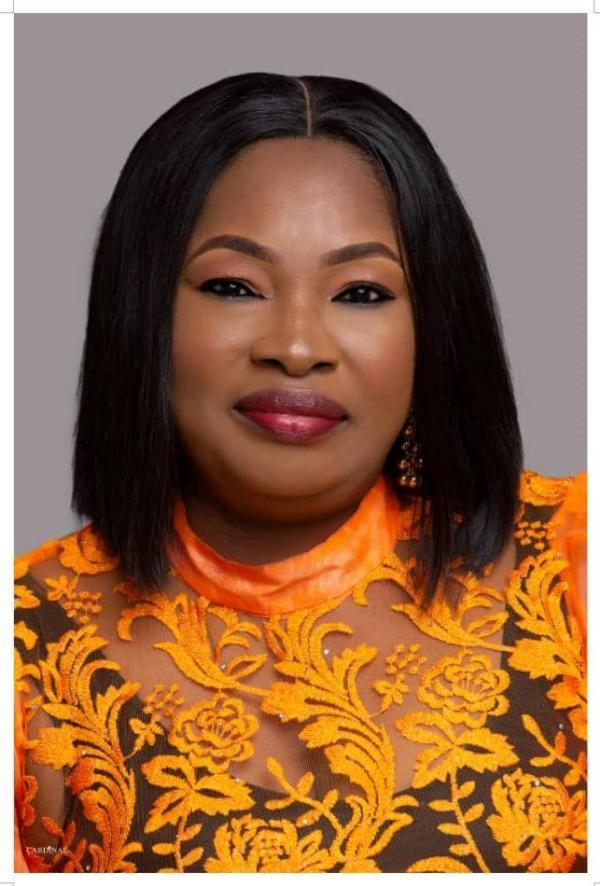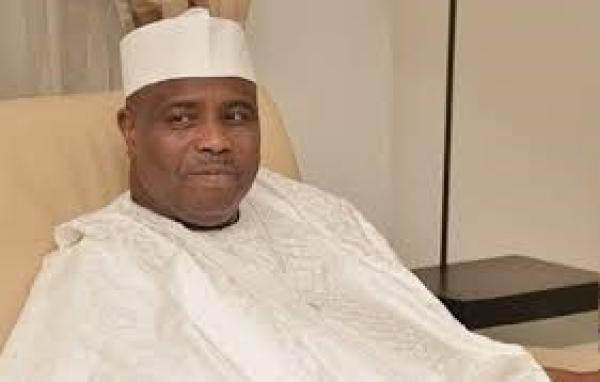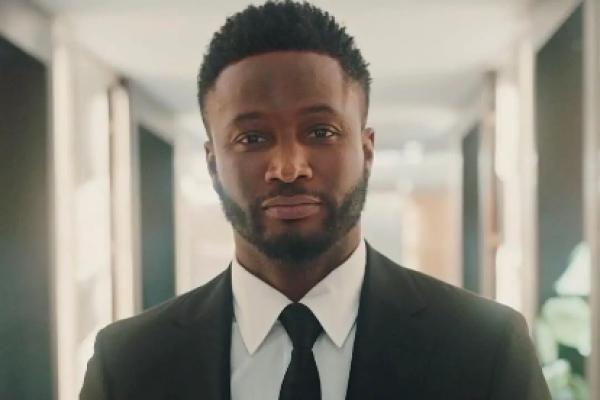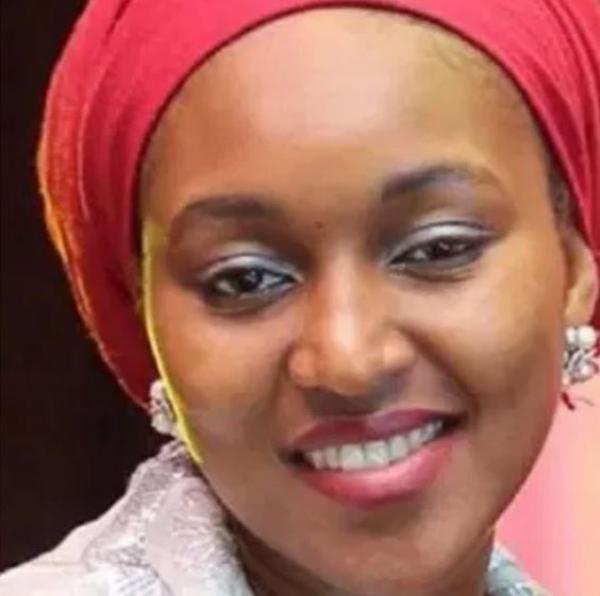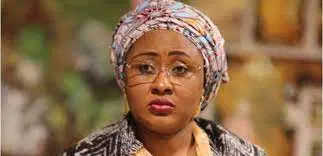
LAST moments of electoral paroxysms, as the fever of the 2015 general elections, beginning next February, cuts deeper. That is how to visualise current happenings in the two major political parties.
The ruling Peoples Democratic Party (PDP) finds itself enmeshed in a web of naked ambition, intrigues, manoeuvres, horse-trading and is faced with walking a tightrope of managing unpleasant challenges.
On its part, the main opposition party, All Progressives Congress (APC), after serving, for most of its little-over-one year existence, as a platform for some of its elite adherents to play for national name-recognition, comes round to realise it has to go with either former Head of State, General Muhammadu Buhari (Rtd) or former Vice President Atiku Abubakar, if it is to make impact in the February 14 presidential election.
For both parties, it is not clear how they will get past the initial bruises of primaries. The portents are that the last has not been heard about defections.
APC settles for real runners instead of new-born pandas
First to be put off is the euphoric mention in connection with an APC presidential run of House of Representatives Speaker, Aminu Tambuwal, the latest of PDP-elected members of the lower arm of the National Assembly to defect to the opposition.
Prior to his recent cross-carpeting, Tambuwal was essentially primed to succeed the out-going governor of his APC-controlled home state, Sokoto, Alhaji Aliyu Wamakko.
In what was his full endorsement of Tambuwal, who is from Sokoto South district to which the party has zoned the governorship slot, Wamakko reportedly asked Tambuwal to join him at an APC family meeting where he presented him to the party members.
Tambuwal did not openly announce ambition to contest the APC presidential ticket. He was posturing by making well-publicised visits to some prominent statesmen and political leaders while also using his visible office as the Reps Speaker to castigate the Jonathan administration on various policy issues, particularly corruption.
Much momentum, especially of a wild card entry lacking in exposure and experience in public office but youthful, dynamic and a possible game changer capable of upstaging the established contestants, Buhari and Atiku in the bid for the party ticket and eventually pip President Goodluck Jonathan in a supposed “David and Goliath” presidential contest, was propelled around his assumed appearance in the race.
At some point, a picture of an APC presidential ticket featuring Tambuwal with Senator Oluremi Tinubu, wife of one of the main leaders of the APC and former governor of Lagos State, Asiwaju Ahmed Bola Tinubu as his running mate, was painted in the media.
But as it turned out, the most that occurred was for his associates and APC colleagues in the House to collect for him the party’s expression of interest and presidential nomination form sold for N27.5 million. Days on, however, he released a statement with respect to the race to “suspend” his presidential bid.
“Having consulted widely, taking into consideration the concerns of some elders of the party,” Tambuwal’s statement rang out, “I have decided to suspend my participation in the presidential contest for now. I have done so as a sacrifice for the cohesion and unity of APC. I am suspending my participation in the presidential race for now, because I do not have any inordinate ambition to occupy any office. Nigeria is a country too great to sacrifice on the altar of partisan politics and personal ambition...”
With only a modest profile of one-term Speaker of the House of Representatives, from where he, nevertheless, gained some visibility by pumping the Jonathan administration’s policies and programmes with torrents of criticisms, Tambuwal stood no chance against the leading duo of Buhari and Atiku.
Even a consensual event in which any of the two high-profile contestants would be made to bow out of the race and get behind him was most unlikely. In both camps, Tambuwal is rated as “paper weight” and at best a “future presidential material.”
Yet, the Speaker managed to garner some political capital from his novel propagations in connection with the APC presidential ticket.
Obasanjo/Tinubu vis-a-vis Northern interest
IT is believed that it was Tinubu who sought to draft Tambuwal into the race. The chieftain of the Southwest caucus of APC, easily the party’s make-or-mar caucus, was, indeed, said to provide the cash with which a team of House of Representatives members, including the Minority Leader, Femi Gbajabiamila and House spokesman, Zackary Mohammed, purchased the nomination form for Tambuwal.
Tinubu was said to rethink his initial support for Buhari after he visited former President Olusegun Obasanjo at his home in Abeokuta, Ogun State, last month.
Although it was a closed-door meeting after which Tinubu told reporters that he had gone to pay homage and consult on APC’s choice of a presidential candidate, sources, particularly among the leading aspirants, claim that after Obasanjo and Tinubu discussed, “Tinubu became worried.”
In some circles, the APC king-pin is said to be under pressure to help end the re-circling of veteran presidential contestants, who insist on running again and again even while they are believed to have contributed to Nigeria’s woes in the past.
In other circles, not only Tinubu but much of the political class, both North and South, is said to be “forced to weigh realistically the implications” of a Buhari or Atiku presidency.
As one source said: “Buhari is highly independent-minded. If eventually he becomes president, he may not take instructions from godfathers. He cannot be counted upon to play along with politicians and might even wield the big stick if he becomes president.”
Strikingly, soon after the Abeokuta visit, a section of the media alleged that Obasanjo told Tinubu that APC could not sustain its campaign for “change” if it went in with old names, particularly Atiku.
Obasanjo is said to be opposed to Atiku, who was his Vice President. He (Obasanjo) had referred to Buhari as incorruptible. On his part, the former VP uses every available opportunity to deride accusations of corruptibility and maintain that he has never been found guilty of corruption. He insists he was already a millionaire in dollars from his chains of businesses before he went into politics.
Rather than start a fight with Obasanjo, Atiku openly courts solidarity with his former boss whom he visits at Abeokuta, last week’s being the second within months. Both had had an impromptu photo opportunity in Minna, Niger State, two weeks ago. Their published photos often show Atiku reverently bowing virtually to the ground for Obasanjo.
The North plays its card
IT was learnt that high-level meetings of the APC Northern caucus and the region’s elders, including governors, national officials and the presidential aspirants in Abuja last week, weighed options in the best of the region’s interest.
They are said to be preoccupied, just like the high-powered meeting they had held last month in Kaduna, with the need to reduce the possibility of rancour after one of the aspirants might have won the party ticket.
They discussed the pruning down of the aspirants to reduce acrimony and may have concluded that a union of Atiku and Buhari, irrespective of who gets the ticket, would be problematic for Jonathan.
The 2015 presidential contest in which an incumbent president is running for a second term, according to informed sources, “demands more than rabble-rousing” neither is it “an affair for personal political posturing.” Consequently, “only persons with visibility and name recognition could be counted on to make impact.”
For Tambuwal, the discussion was about his “lack of experience to provide responsible leadership to Nigeria in the current state.” He was thus prevailed upon to stand down and instead seek the party’s Sokoto State governorship ticket.
It was gathered that the two other presidential aspirants — Governor Rabiu Kwankwaso of Kano State and Mr. Sam Nda-Isaiah, the publisher of Abuja-based Leadership, who had obtained expression of interest and bought nomination forms, were told to back off and instead throw support for the eventual winner of the party ticket.
Buhari eyes consensus, Atiku fans out on campaign tours
A noticeable difference can be deciphered in the approach of APC’s two main aspirants to their quest for the party ticket.
Buhari seems to be essentially waiting and hoping that consensus will eventually be used to decide the party ticket. His camp definitely calculates that if the party works out a flagbearer through consensus, Buhari would clinch the ticket.
Hence, he is engaged with attending public functions, particularly the party’s rallies and visits, such as his recent social call to Onitsha, Anambra State, to attend the burial of the late Chief Chike Ofodile (SAN), a former Attorney General and Minister of Justice under Buhari as Head of State.
He was also at Edo State Governor Adams Oshiomhole’s six-year anniversary rally in Benin City and at Rivers State Governor Rotimi Amaechi’s rally in Port Harcourt. Buhari visited Lagos and was received by Governor Raji Fashola in his office.
Atiku, on the other hand, has consistently criticised consensus, tagging it undemocratic and that it will serve the party no good. The Turaki Adamawa is unequivocally for special primary.
In a recent interview he granted a social media platform, he said of primary: “I am really prepared for primary because this is a game that I have participated in more than others. I have been involved in primary election since early 90s and I have gained a lot of experience whether they are direct or indirect.
“The perception that the ticket is there for Buhari to take is a mistaken perception because Buhari has never participated in primaries. I believe that is not going to be helpful to him in this case.”
Atiku is touring the states to interface the party’s delegates, political leaders, traditional rulers, opinion moulders, etc. He is exuding a can-do confidence and he is so far the one speaking on plans and canvassing ideas or proposing alternatives on his presidential ambition.
Controversies over PDP primaries and automatic tickets
THE moment all the vital leadership organs and formations of PDP anointed President Goodluck Jonathan as its sole candidate, the party created you-chop-I-chop situation. It is also hilariously described as, “what is good for the goose is good for the ganger!”
Once PDP governors, led by the Akwa Ibom helmsman, Godswill Obot Akpabio, anchored Jonathan’s sole candidacy, they promptly returned to their states to scheme for their automatic tickets and other interests.
While the party’s November 1 ward/ local government delegate primaries in the states it controls may not have been trailed by much debilitating incidents in the states in which governors are on first term and going for second term, the states where the governors are on second term and looking for something else, principally a seat in the Senate, are enmeshed in political warfare.
Serving senators, especially those angling to be returned, are faced with plots to outwit them.
Since the November primaries, senators have been up in arms against the PDP hierarchy. They threatened to frustrate legislative functions, including the passage of the 2015 Appropriation Bill.
A number of them are insisting on automatic tickets, claiming they were denied level-playing field during the primaries, as the governors out-manoeuvred them. As such, they have been holding nocturnal meetings.
Senate President David Mark led senators to the Presidential Villa, to trash out the crises-ridden primaries with Jonathan and the PDP leadership.
It is said that some senators, especially the prominent ones, were conceded automatic tickets, using the option of returning at least one senator per state. Options like senators contesting the governorship or be on stand-by for federal appointment, if PDP wins, were also said to be discussed.
Senators have to swim or be sunk
While Senate President Mark, to whom a return ticket was presented by his Idoma community (in Benue State) is guaranteed a virtual smooth-sail back to the upper chamber, his deputy, Ike Ekweremadu, has to contend with the desire of Mr. Sullivan Chime, two-term governor of Enugu State, to retire to the Senate.
Chime and Ekweremadu hail from Enugu West. It doesn’t end there: Chime has meanwhile led the state PDP to endorse a three-term member of House of Representatives, Ifeanyi Ugwuanyi, for the governorship. Incidentally, the very visible Senator Ayogu Eze, who is vying for the governorship under the PDP, as well and Ugwuanyi are from Enugu North.
Though the highly-experienced Senate Leader, Victor Ndoma-Egba (SAN) is described as very popular back home in his Central district of Cross River, the state governor, Senator Liyel Imoke, is not supporting him.
The state PDP is reportedly engulfed in tension as Imoke, a two-term governor from the northern part of the state, is believed to be backing Owan Enoh, the chairman, Finance and Appropriation Committee of the House of Representatives, as replacement for Ndoma-Egba while prominent figures, including two former governors, are supporting his return.
Professor Ben Ayade, representing Cross River North in the Senate, took the governorship form in what is, nevertheless, alleged as clearing the way for Imoke to run and go and relax at the Senate although he reportedly maintains he harbours no such ambition, at least at present.
Some senators may, however, succumb to their state governors. For example, it is likely that Akwa Ibom’s Akpabio, who doubles as chairman of PDP governors, may have worked out a deal with Senator Aloysius Etuk to replace him as senator for Akwa Ibom North West.
In Rivers State, the question of power shift, with respect to the governorship race, is proving the knotty issue for the leadership of the party to crack. But it comes across as an extension of the Governor Rotimi Amaechi famous face-off with Abuja.
The governorship ambition of a former Minister of State for Education, Nyesom Wike, seems favoured by Abuja, principally because he is an Ikwerre man from upland Rivers like Amaechi and is perceived as best suited to stand up to Amaechi and the APC at the polls. The PDP has already tested this strategy at recent elections in the Southwest.
The logic that PDP could not consider zoning for the state, as it is no longer in control of the office of governor, has not impressed the riverine part of Ijaws, who are protesting being denied governorship for over 16 years.
Rivers is like Delta State presenting an uncertain picture of PDP performance in the 2015 governorship election.
Delta, theatre of usual fierce electoral warfare
GOVERNOR Emmanuel Eweta Uduaghan, it is said, is interested in retiring to the Senate from two terms of running Delta State. That puts him in collision with Senator James Manager (Delta South), who is on his 12th year (three terms) in the Senate — also said to be a beneficiary of automatic ticket from the meeting between President Jonathan and senators.
Uduaghan is Itsekiri while Manager is Ijaw. The two minority ethnic groups, along with another minority nation, Isoko, constitute Delta South.
Meanwhile, the governor’s alleged design to impose his successor, 58-year-old Mr. Tony Obuh, a director of Government House before he resigned to contest the governorship, is causing ripples and considered an affront by otherwise more notable runners like Senator Ifeanyi Okowa, Mr. Godswill Obielum, Hon. Ndudi Elumelu, Mr. Ovie Omo-Agege and Mr. Victor Ochei.
However, Uduaghan is speculated to have a Plan B, something he is said to keep close to his chest. It is a strategy akin to former Governor James Onanefe Ibori springing Uduaghan, his cousin, to succeed him.
Like Ibori under whom Uduaghan was Secretary to the State Government (SSG), Obuh was the governor’s Permanent Secretary when he (Uduaghan) was SSG — something fiercely protested within the PDP in the state tagged “stopping Ibori/Uduaghan dynasty.”
How far can outgoing Governor Uduaghan go in installing his preferred successor and, at the same time, make it to the Senate?












